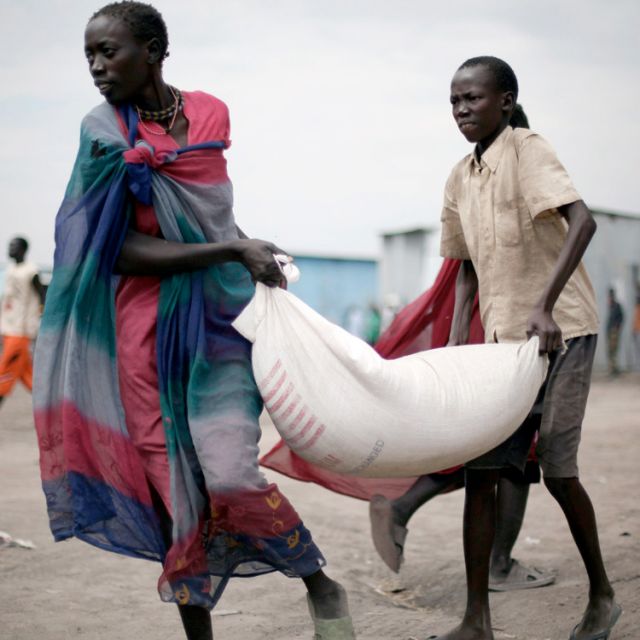Bishop Gassis' diocese straddles a border area of Sudan and South Sudan, and members of the Sudan People's Liberation Movement-North fought with the South for independence. For months, the Sudanese government has been fighting the SPLM-North in Sudan's South Kordofan state.
Bishop Gassis told Fides, the Vatican missionary news agency, in mid-February that "even the church has had its victims."
However, he told Fides, none of the priests, religious and medical personnel has abandoned the people, despite the constant bombardment and seeing the "mangled bodies of civilians, especially children."
Sudan has allowed only a limited amount of aid into the area, and on Feb. 14 the U.N. Security Council, expressing "deep and growing alarm with the rising levels of malnutrition and food insecurity," called on the government to let it send aid workers to South Kordofan and other states along the Sudan-South Sudan border.
Bishop Gassis expressed concern over increasing tensions between the neighboring countries. He said South Sudan does not want war, but Sudanese President Omar Bashir "tries to solve problems with new wars."
Sudan accuses South Sudan of backing the SPLM-North in its efforts to overthrow the Sudanese government.
Bishop Gassis also noted that South Sudan has closed off its oil supplies to the North. South Sudan produces 350,000 barrels of oil per day, but the only pipeline to market runs through Sudan. The two countries sent representatives to Ethiopia to negotiate the oil situation.


